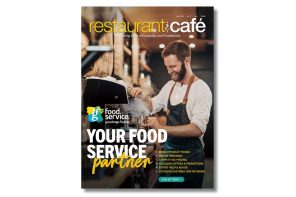By Marisa Bidois, CEO, Restaurant Association of New Zealand
How happy are the members of your staff? Employee happiness and staff morale have major roles in customer experience and satisfaction. Staff members that are happy and engaged in their work create a trickle-down effect into customer experience and overall customer engagement.
In fact, according to Gallup’s study on customer engagement, fully engaged customers make 56 percent more visits to casual dining establishments and 28 percent more visits to fast food businesses per month than actively disengaged customers.
In New Zealand, the hospitality industry is projected to grow to $10 billion dollars in annual sales by the end of 2018 and with the vast variety of dining choices available throughout the country, it’s safe to say that customers will be more inclined to spend their money with businesses they feel good about. Simply put, consumers will give more money to the businesses they feel emotionally connected to and ignore those that provide them with no value.
Staff members that are happy and engaged in their work create a trickle-down effect into customer experience and overall customer engagement. So, how do you create a positive, productive and meaningful work culture where your employees are happy to come to work?
The first step is to create an organisational constitution that outlines your dining establishment’s purpose and raison d'être – or reason of being and existing – outside of making money. By formalising your business values, you are creating a foundation for consistency in terms of observable and measurable behaviours, as well as performance expectations.
Restaurant Association mentor Tony Adcock proposes some strategies to think about when creating or redefining your restaurant culture:
- Create a family environment.
Hospitality is a tough industry with long hours and high pressure. Creating an environment that mimics that of a warm and supportive family can help your team collectively pull through difficult times and minimise alienating individual staff members. Business owners or heads of staff will need to own the training process of putting into practice the values that have been outlined in the organisational constitution. This will establish the overall culture so it can be replicated down to the rest of the team. - Focus on respect.
Emphasis on keeping an open dialogue within the team with a key priority of maintaining respect can help alleviate communication problems and also instil the importance of mutual respect in the team. This can be particularly useful with employees of opposing personalities or with communication issues between FOH and BOH teams. Focusing on performing all tasks with a sense of respect can make a huge difference to the morale of a team, especially in times of stress. - Have a system in place.
Having a clearly defined system in place for your team can cut the stress and confusion in times of high pressure and also improve communication between team members. What do you do when someone calls in sick at the last minute? What about if a customer comes in two minutes before closing? What is the process to diffuse a conflict between your kitchen and wait staff?
With a system in place, it’s also easier to troubleshoot when problems arise to tweak and improve processes for a smoother service going forward.
As we enter a year of change, it’s worth the effort to review your restaurant culture to ensure it’s aligned with the vision you intended for your restaurant.






